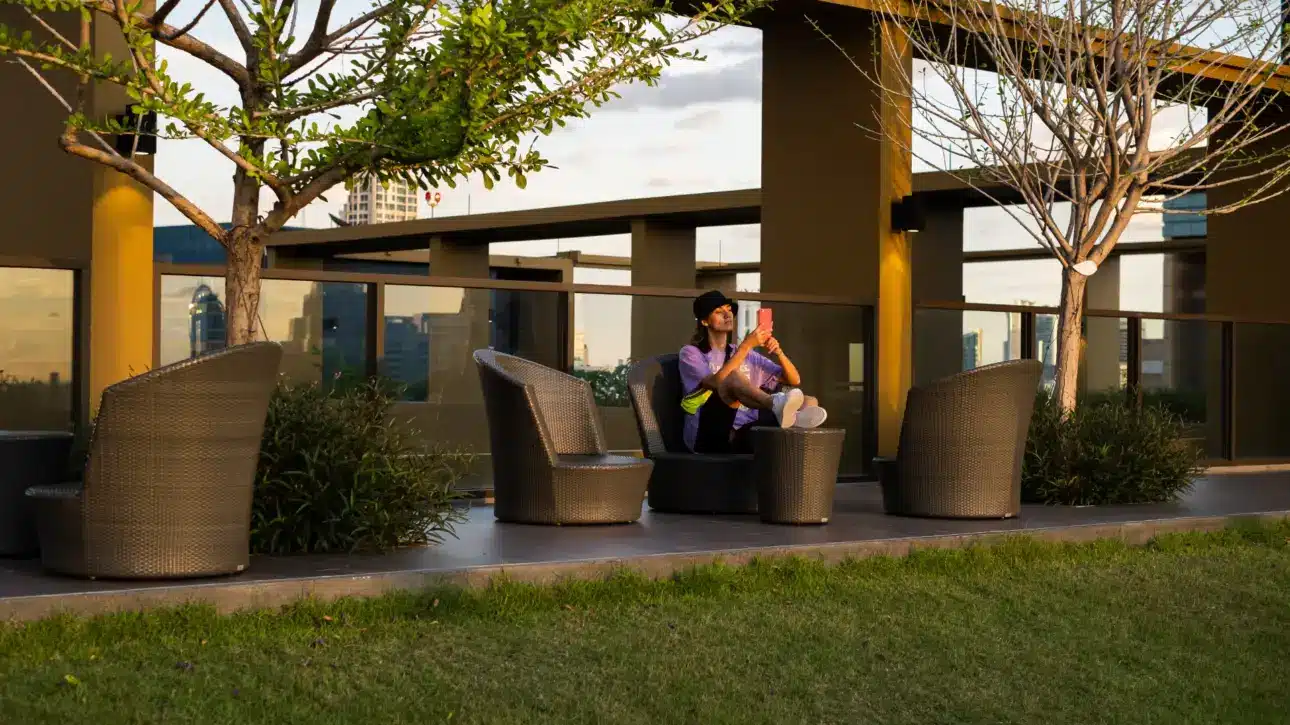Renovations of your house are a great approach to make your living area better, raise the value of your house, and design a place fit for your style and demands. Approach the project carefully, whether your goal is to remodel a tiny kitchen, a luxury bathroom, or perhaps your whole house in line with home renovation trends in Brisbane. Renovations can rapidly become a nightmare rather than a dream endeavour without appropriate preparation and professional counsel.
Home renovation mistakes Brisbane can be especially expensive, where homes have distinctive architectural designs, including Queenslanders, and a tropical environment that must be carefully considered throughout repairs. The usual errors to avoid during your renovation project will help to guarantee a successful, effective, and reasonably priced completion of the job.
15 Top Mistakes To Avoid When Renovating
Although renovating your house can be a fascinating and fulfilling project, carelessness will easily lead to expensive mistakes. Many homeowners undervalue the difficulty of renovations and ignore the potential renovation pitfalls, which can be avoided with careful planning and professional assistance. These 15 typical mistakes to avoid while renovating your Brisbane house will help you negotiate the process and guarantee a successful project.
1. Skipping the Budget Planning
Home renovation cost Brisbane can be one of the most common errors homeowners make when beginning a restoration project if they fail to create a reasonable budget. Many people either undervalue the expenses that surface as the project moves along or underwrite the costs. Costs can rise rapidly whether you are remodelling your bathroom, updating your kitchen, or adding to your house.
How to Avoid It:
- Get many bids from seasoned builders and closely review the rates.
- Add a contingency reserve to your budget; set aside at least 10 to 20 percent of your overall allotment for unanticipated costs.
- Sort your renovation priorities. Before indulging in luxury renovations, concentrate on necessary modifications that will add value and utility to your house, such as structural alterations.
2. Not Hiring Professional Help
Many Brisbane residents try to save money by attempting to renovate their own homes, avoiding the need for a home renovation contractor in Brisbane. Although do-it-yourself projects like painting could be appropriate for some small jobs, more complicated work, including structural alterations, plumbing, and electrical work, should always be left to experts. Apart from making expensive blunders, improper installations could also endanger safety.
How to Avoid It:
- Always pay licensed experts for structural, plumbing, or electrical services.
- Search local plumbers, electricians, and research builders. Search for those with stellar industry track records and reviews.
- For bigger projects, see designers or architects to make sure your vision is both realistic and pragmatic.
3. Overlooking Permits and Regulations
Particularly when you’re making structural improvements, dealing with electrical systems, plumbing, or gasfitting, planning errors may lead to problems in house renovations in Brisbane that require licenses. Ignoring the required permits could cause major legal problems, fines, or even the requirement to redo.
How to Avoid It:
- Find out from your local government or Brisbane City Council which licenses your project requires before beginning.
- Make sure all of your builder’s work conforms to regional building regulations.
- Record all licenses and inspections to prevent any issues down the road.
4. Changing Plans Midway
Midway through the remodelling, homeowners often have second thoughts about specific elements or the arrangement, resulting in costly contractor issues. Although this is inevitable in the process, regular adjustments might cost the project time and money. Often, rework on plans or changing the scope following building starts causes delays and unanticipated expenses.
How to Avoid It:
- Before beginning the renovation, have a well-defined strategy. Before any building starts, finalise the layout and features, working with a designer or architect.
- As much as feasible, follow the strategy. If changes are required, talk to your builder about them to learn the cost ramifications and timetable modifications.
- Before work begins, be sure everyone engaged, including craftsmen and contractors, agrees.
5. Neglecting the Structural Integrity
Though they often centre on cosmetic improvements like repainting or new countertop installation, ignoring the structural integrity in home renovation mistakes Brisbane can lead to bigger long-term costs. Ignoring basic problems, termite damage, or drainage difficulties could cause big headaches and later on expensive repairs.
How to Avoid It:
- Before starting the restoration, have an expert look over your house for any structural problems.
- First, to guarantee your house is safe and sound, take care of any structural or foundation problems.
- Investing in premium materials for your renovations can help you to emphasise long-term durability.
6. Not Prioritizing Functionality Over Aesthetics
Although your renovations’ outward look is appealing, your first concern should be utility. Even if a location looks great, poor storage, inconvenient layouts, or inadequate lighting can make life tough.
How to Avoid It:
- Think about how your family and you will make use of the area to ensure design flaws don’t impact functionality. A kitchen should be functional for cooking and entertaining, for example, not only look good.
- See a skilled designer to guarantee the area is not only aesthetically pleasing but also useful.
- Especially in places like kitchens and bathrooms, invest in clever storage ideas and layouts that best maximise space.
7. Underestimating the Time Involved
The length of time renovations require shocks many homeowners. Common causes of delays are unanticipated events such as material availability, climate, or trade personnel scheduling. Your remodelling may last months without a reasonable schedule, causing project delays that leave you living in a construction zone.
How to Avoid It:
- Create a calendar considering possible delays before starting any kind of task.
- Work with your contractor to create a well-defined calendar showing when each chore will be finished.
- While you should be adaptable with your schedule, keep a check on the development to prevent continuous disturbance of your everyday life.
8. Overlooking Energy Efficiency
One excellent chance to increase the energy efficiency of your house is a renovation. There are lots of methods to make your house more environmentally friendly, from improved windows and insulation to energy-efficient appliances and lights, all contributing to an increase in property value in Brisbane. Ignoring these factors could lead to more utilities and lost chances to increase the sustainability of your house.
How to Avoid It:
- Choose energy-efficient products, such as improved insulation or double-glazed windows.
- Select low-energy consumption appliances and lighting to lower running costs over time.
- Think about smart home technologies that maximise energy use, including lighting systems or thermostats.
9. Not Preparing for Temporary Living Arrangements
Without preparing for temporary living arrangements, homeowners often face home renovation mistakes, especially during major projects like house extensions or kitchen makeovers, which might render sections of your house unusable for weeks or even months, highlighting the need for temporary living arrangements. This might throw off daily living and complicate your ability to operate in your space.
How to Avoid It:
- If the remodelling calls for major disturbances to important sections like the kitchen or bathroom, or if it is extensive, think about temporary relocation.
- While renovations are underway, rent a storage space or ask friends or family if they might keep your furniture.
- If needed, prepare for a makeshift bathroom or kitchen; otherwise, book other lodging.
10. Choosing the Cheapest Option
Regarding house improvements, you usually get what you pay for. Selecting the least expensive contractor, supplies, or design concept could help you save money initially, but over time, bad quality, repairs, or even safety issues could cost more.
How to Avoid It:
- Choose not always the least expensive quotes. Review the calibre of the contractor’s experience, tools, and supplies as well as the service itself.
- Think of the long-term worth of better materials and professional knowledge.
- Remember that the least expensive solutions could initially save you money but also cause costly problems down the road.
11. Failing to Incorporate Future Needs
One chance to future-proof your house is a remodelling. Many people overlook their long-term needs—that of growing the family, ageing in place, or enabling future technology—when planning home renovation in Brisbane.
How to Avoid It:
- Consider how your needs might evolve within the next five to ten years.
- As you plan restrooms, bedrooms, and living areas, consider future accessibility or family expansion.
- Add technical infrastructure that will let you update your house as development in technology proceeds.
12. Neglecting Outdoor Spaces
Although during renovations you might easily concentrate on the inside of your house, the outside and surroundings are equally vital. Ignoring the backyard, landscaping, or outside living space might make your house seem lacking.
How to Avoid It:
- As part of the remodelling, arrange outside areas such as decks, patios, or gardens.
- To create a friendly space, make investments in gardening, lighting, and nice outdoor furniture.
- Consider how you will use the area year-round and plan it to fit entertainment as well as leisure.
13. Ignoring the Importance of Good Lighting
Any house makeover depends critically on lighting, although it’s sometimes underappreciated. Bad lighting could make a room seem small, awkward, and unwelcome. Conversely, good lighting can change the ambiance of a room by accentuating architectural details and raising utility. Careful planning of the lighting scheme will help to fit the use of every area throughout the renovation.
How to Avoid It:
- To produce a balanced and well-lit space, mix ambient, task, and accent lighting.
- Leverage natural light by selecting reflecting surfaces and bright-colored walls.
- Install task lighting over desks in crucial areas like the restroom or kitchen to improve utility.
- Think about energy-efficient LED lights that, over time, offer cost savings along with brightness.
14. Failing to Plan for Future Maintenance
Consider the upkeep of your new house renovations even as you are designing your makeover. Many homeowners overlook the long-term maintenance some materials or features may demand, even when they concentrate on the immediate beauty and utility of their makeover.
How to Avoid It:
- For flooring, choose low-maintenance materials, such as tiles or composite decking.
- For bathroom and kitchen surfaces, use simple, easy-to-clean finishes to cut the maintenance needed to maintain them in best shape.
- Choose sturdy and long-lasting elements to help you plan for future maintenance, therefore reducing the need for expensive repairs or replacements.
15. Not Considering the Impact on Property Value
Although renovating can be a fun project, it’s crucial not to undervalue its possible influence on the value of your house. If done carelessly, some renovations could cause overspending or a mismatch with the area. When deciding on design, future resale should always be considered.
How to Avoid It:
- Emphasise modifications that increase the worth of your house, including bathroom and kitchen makeovers as well as outside living spaces.
- Steer clear of costly additions or upgrades that can price your house out of line with the local market.
- Working with a professional will help you to make sure your renovations reflect current trends while preserving the charm of your house and area.
Conclusion
If done correctly, home renovations in Brisbane may be a fulfilling experience; nevertheless, the process calls for careful planning, knowledge, and avoidance of typical pitfalls. Working with experts and keeping these strategies in mind can help you avoid costly home renovation mistakes Brisbane, ensuring your renovation project runs smoothly and produces the desired outcomes. Spend some time organising, budgeting, and presenting your concept to your team to produce a house that is not only aesthetically pleasing but also functionally sound and long-lasting.





